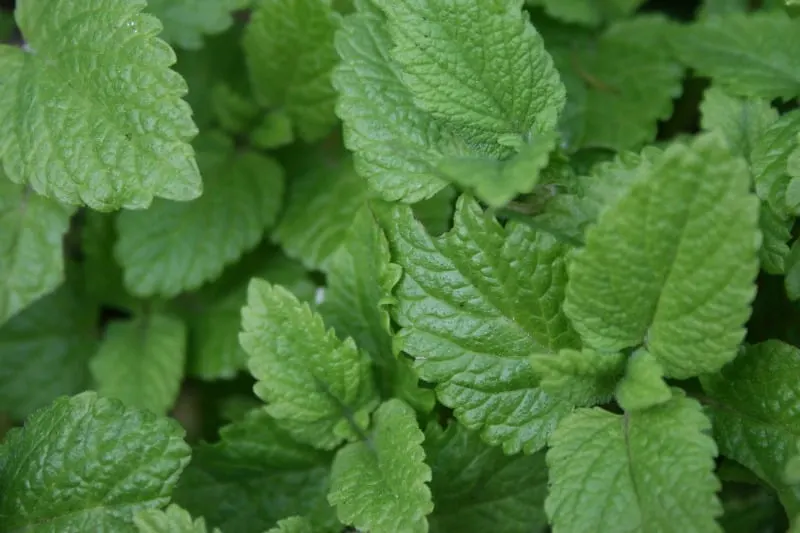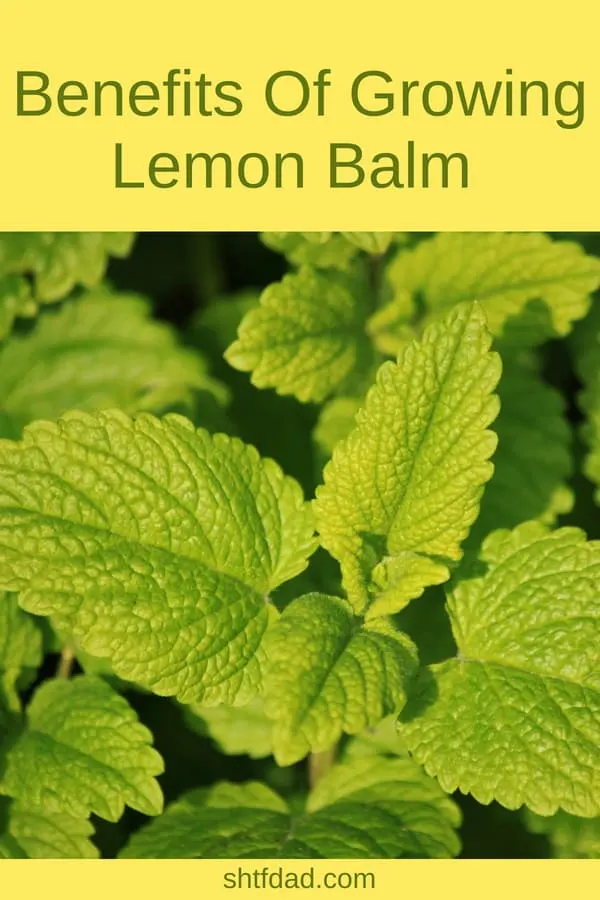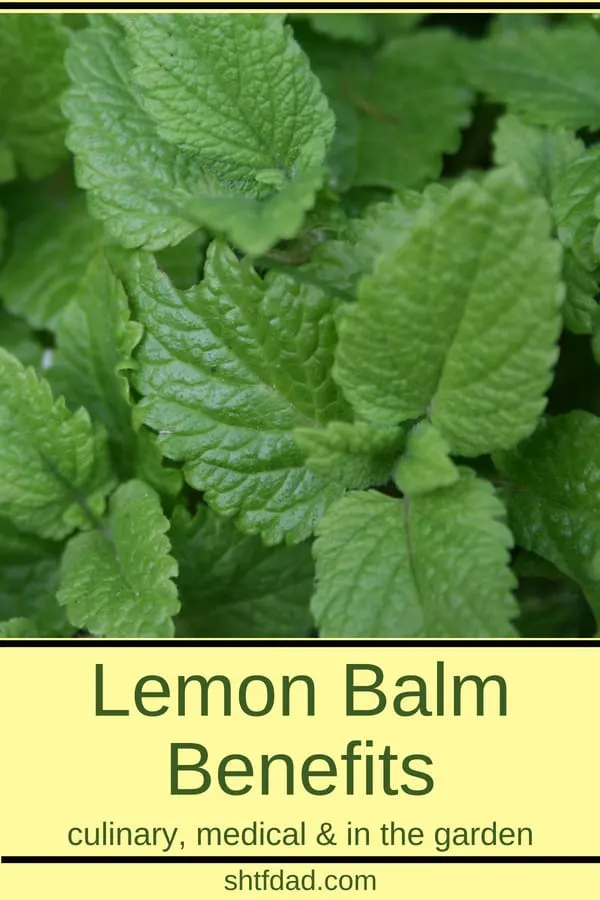SHTFDad may collect a share of sales or other compensation from the links on this page.
I’ve seen lots of information floating around the internet touting the benefit of growing lemon balm (Melissa officinalis) on your porch as a means of repelling mosquitoes, and while that is one of the lemon balm benefits, it also has a variety of other uses.
Let’s take a look at them and how they can be a useful addition to any homesteader’s garden.
Lemon Balm Benefits

Medical Benefits
Lemon balm is used for several medical purposes and is a good tool to keep in one’s arsenal.
One use is to provide aromatherapy for Alzheimer’s patients; it helps to improve one’s memory by binding to acetylcholine, a neurotransmitter, and enhancing its performance to help people learn and retain information.
Lemon balm is also known to help shorten the duration of a cold sore outbreak. It can even decrease the number of blisters when applied topically.
A tea made from lemon balm plant leaves can reduce stress and anxiety. It can also be used as an aid in fighting insomnia since it has sedative properties
To make a calming herbal tea, steep the leaves in hot water for 5 minutes. Then strain and drink with a teaspoon of honey.
Apply topically for bug bite relief. It can inhibit the harmful activity of bacteria and viruses. Try taking a bath with an infusion of lemon balm, thyme, and sage for cold and flu relief.
Finally, lemon balm can ease migraine headache pain.
Culinary Uses of Lemon Balm
Lemon balm has a host of culinary uses. As mentioned above, lemon balm may be used as an herbal tea but is also a zesty addition to black or green tea.
Here are some other uses in the kitchen
- garnish for fish or vegetables
- as a zingy addition to a salad
- lemon peel or rind substitute
- create a flavoring extract for food
- and if you’re longing for something sweet, it can even be candied.
When cooking with lemon balm, it is best to use fresh leaves because they lose flavor when frozen and/or dried.
In the Garden
Lemon balm attracts bees which are great pollinators for your garden. It also makes a plant-safe insecticide when leaves are steeped in water and then sprayed on the desired areas.
If you are a beekeeper, here’s a nice tip for your hive: rub some lemon balm leaves inside the hive. This encourages bees to stay.
Other Uses
Lemon balm is a wonderful aromatherapy tool. Here’s how to use it for its aromatic properties:
- add to the rinse cycle while doing laundry for a fresh fragrance
- scent homemade cleaners
- use in potpourri
- make soap with it
- fight acne
Adding some leaves to a large bowl of hot water and leaning over the water with a towel over your head for a steam bath. This also helps to soothe dry skin. And it makes a wonderful rinse for oily hair and nice skin toner.
How to Grow Lemon Balm
- Lemony Fresh Herb - Lemon balm is a mild, lemony...
- Beautiful Plants - Full grown lemon balm plants...
- Grow Now or Later - Start planting your fresh...
Lemon balm is a perennial plant that can grow in U.S. zones 4-9. It can be grown by sown seed, root division, or rooted cuttings.
Lemon balm grows best in full sun but can also grow in part-sun and part-shade environments. Since it is a member of the mint family, it is best to plant it in a pot to contain it as it can spread vigorously.
When harvesting lemon balm, aim to leave about four inches of the plant above the soil.


Resources:

